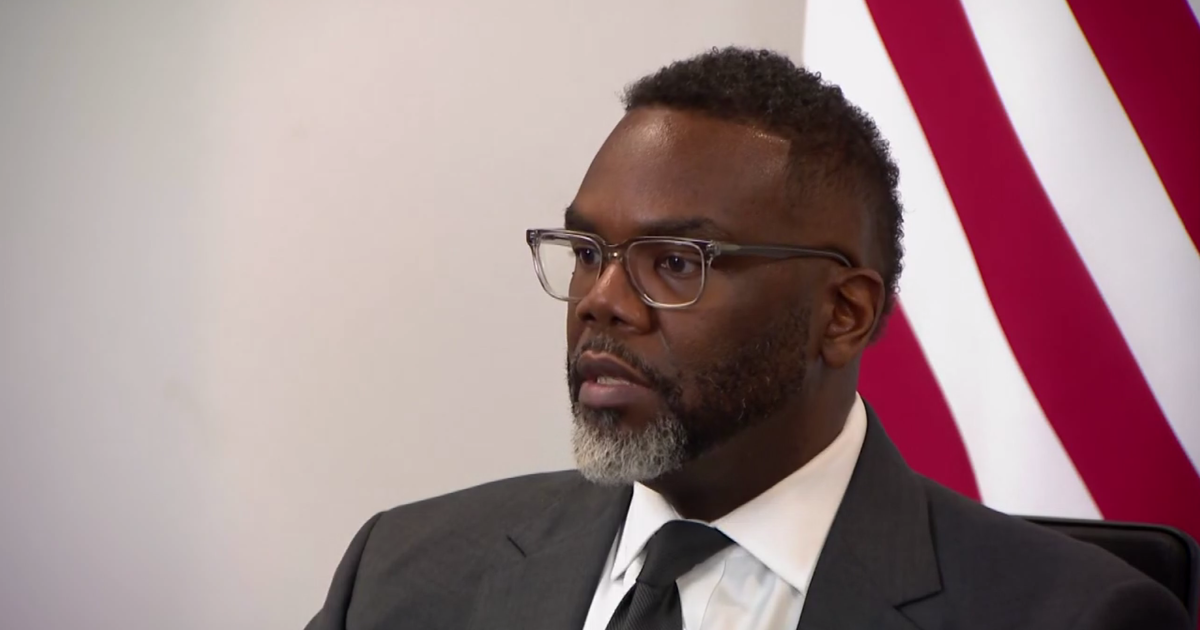Amazon shareholders push retailer to wean itself off fossil fuels
- At Amazon's shareholder meeting Wednesday, employees and some shareholders unsuccessfully pushed a resolution to make the company disclose its carbon footprint and reduce its fossil-fuel use.
- Although Amazon is the fifth-largest company in the U.S., with $233 billion in revenue last year, it has revealed little about its greenhouse gas emissions.
- Backers of the proposal, which Amazon opposed, say climate change is already affecting the company's business.
Thousands of Amazon's employees, along with some investors, unsuccessfully pushed the company to publicly explain how it will deal with climate change. Amazon shareholders voted down a proposal at the company's annual meeting Wednesday that would have required the online retailer to detail its plans for reducing the use of fossil fuels and its strategy for coping with global warming's growing impact on operations.
The proposal was one of 11 shareholder resolutions under consideration, including tying executive compensation to sustainability goals, banning sales of Amazon's facial-recognition software to governments, and disclosing more information on how Amazon pays female employees. All were voted down, as is the case for most shareholder proposals at corporate annual meetings in the U.S..
"It's unacceptable for one of the richest companies in the world to continue to take half actions as the consequences of its emissions put so many lives of the global poor at risk," Rajit Ifthikar, an Amazon employee who pushed for the climate change initiative, told reporters after the meeting.
However, the drive to learn more about Amazon's plan for coping with climate-related disruptions has already pushed the company to act. Against the company's objections, employee shareholders successfully introduced the proposal in late 2018, with more than 7,000 workers publicly supporting it. In February, Amazon said that it would reveal its carbon footprint sometime this year.
For some, climate change is personal
For Rebecca Sheppard, who grew up in Wilmington, North Carolina, weather and climate change issues have become personal. As a child, it was the hurricanes that visited her home state frequently; today, it's the wildfires that blow smoke in her face on her daily ferry commute to her job at Amazon's Seattle headquarters.
These events have made Sheppard, 28, look at her own contribution to climate change more closely. She is a product manager in aviation—a heavily polluting industry that creates about 3 percent of the U.S.'s greenhouse gas emissions.
"I've been working with airplanes since 2013, and I've felt a lot of guilt for my personal association with carbon emissions," she said. So when she read in December that a group of her Amazon co-workers who were also shareholders filed a shareholder resolution asking the company to commit to reducing its climate-change footprint, she eagerly jumped on board.
The resolution asked the board to "prepare a public report as soon as practicable describing how Amazon is planning for disruptions posed by climate change, and how Amazon is reducing its company-wide dependence on fossil fuels."
Sheppard's vote preference was clear: "Suddenly, instead of waking up every day feeling guilty, I could wake up and feel proud," she said.
Much of Wall Street agrees
For Sheppard—and the more than 7,600 Amazon workers who have to date publicly urged the company to get off fossil fuels—managing a climate crisis is a no-brainer. Many feel that Wall Street's second-most valuable company, which has a market capitalization surpassing $1 trillion, and which has upended industry after industry over the past two decades, should have a plan for what they see as the world's most pressing problem.
"One of the things that's really resonated with people [is] this sense of 'Why isn't Amazon leading on that?'" said Weston Fribley, one of 16 employees who introduced the shareholder resolution in December. "We would really like to work for a company that's taking this seriously and prioritizing its own fossil-fuel reduction."
But perhaps surprisingly, many on Wall Street have also pushed for Amazon to reveal its carbon footprint. The reason, they say: Heat waves, deep freezes, wildfires and flooding — all of which are made worse by increased carbon in the atmosphere—are already affecting Amazon's operations, and the company needs to have a plan to deal with it.
Climate change is growing as an area of shareholder concern, with investors this annual meeting season looking to dozens of companies from Ross Stores to Yum brands to describe how they're softening their impact on the climate. But no company has Amazon's size combined with an unprecedented reach into so many industries: Retail, transportation and technology, to name just three.
If the company were required to completely decarbonize, "It would face challenges, it would require a multi-year horizon," RJ Hottovy, an analyst at Morningstar who covers the company, told CBS News.
Backers of the resolution say that's precisely the reason Amazon should make a plan now. Delays are likely to make the eventual transition even more expensive.
"We believe that issues, including extreme weather patterns, a more stringent regulatory framework on climate-related issues, and changing public perceptions on account of climate change, can all have real and disruptive effects on companies," Glass Lewis, an investment advisory firm, wrote recently. Institutional Shareholder Services said that Amazon "lags its peers in not publicly disclosing its carbon footprint …. and not setting science-based, time-bound targets for reducing its [greenhouse gas] emissions." Both recommended that shareholders approve the resolution.
"We're seeing a lot of professional money managers saying [environmental, social and governance] analysis is just as important as fundamental [stock] analysis," Dave Goodsell, executive director of Natixis Investment Managers' Center for Investor Insight, told CBS News. "That could mean looking at a company's inherent risks from an environmental standpoint, looking at potential losses due to lawsuits, or disasters having financial impacts. It does ultimately have an impact on the bottom line."
Amazon opposed the shareholder resolution, arguing that it is already reducing its emissions and has a long-term goal to use only renewable energy.
A spokesperson did not respond to a list of questions from CBS News, but pointed to Amazon's previous announcements regarding sustainability, including "Shipment Zero, our vision to make all Amazon shipments net zero carbon, with 50% of all shipments net zero by 2030."
"Amazon's sustainability team is using a science-based approach to develop data and strategies to ensure a rigorous approach to our sustainability work," the spokesperson said in a statement. "In operations alone, we have over 200 scientists, engineers, and product designers dedicated exclusively to inventing new ways to leverage our scale for the good of customers and the planet. We have a long term commitment to powering our global infrastructure using 100% renewable energy."
9 of 10 biggest retailers disclose -- only Amazon does not
There is plenty of anecdotal evidence that extreme weather is already affecting Amazon's operations. Last November, a tornado killed two workers in an Amazon fulfillment center outside Baltimore. Later that month, California's Camp Fire temporarily closed a fulfillment center in Sacramento.
Severe storms, which are becoming more intense and more frequent thanks to the greenhouse gases humans put into the atmosphere, have caused outages at Amazon data centers from the East Coast of the U.S. to Sydney, Australia. That's on top of the suffocating heat that workers in many warehouses already complain of. (That last one may not strictly be a climate issue: According to a letter from a former warehouse employee, read outside New York City Hall last week, Amazon would not provide air conditioning in its warehouses because "the robots inside can't work in the cold weather."
Amazon has said it will issue a report on its carbon footprint sometime this year. But some on Wall Street are pushing for the company to get specific with goals to move to renewable energy—and put dates and figures on previous green initiatives.
"As an investor and analyst of the environmental, social and human capital risk facing Amazon, it's really difficult for me to distinguish those initiatives announced by the company from greenwashing," said Pat Tomaino, director of socially responsible investment, Zevin Asset Management, on a call with reporters. ("Greenwashing" is usually defined as P.R. spin that makes something seem more environmentally friendly than it really is.)
Amazon has dragged its feet in the past when asked for sustainability goals, according to some analysts. In February, Amazon announced it would make its carbon footprint public and make half its shipments carbon-neutral in just over 10 years. The following day, it asked the authors of the shareholder resolution to withdraw it
Today, nine of the 10 biggest global retailers disclose their carbon footprint through CDP, a nonprofit environmental disclosure platform—all except Amazon. "A lack of transparency on environmental impact has been a long-standing problem for the digital retail giant," according to Dexter Galvin, global director of corporations and supply chains at CDP. Disclosure "is the industry standard and refusing to participate suggests that Amazon is out of step with the market," he said.
Microsoft, Alphabet and Apple have well publicized goals to be entirely carbon-neutral; Amazon does not. UPS and FedEx both release about 13 million tons of carbon dioxide every year, according to CDP; Amazon's emissions are unknown.
Its major profit centers can be carbon hogs
That's especially troubling because the major drivers of Amazon's profitability in the future are all carbon-intensive. That includes its recent introduction of one-day shipping for Prime members and the growth of AWS, which depends on the company's vast data centers.
"AWS is clearly one of the fastest-growing parts of the business, and advertising is a major driver," said Morningstar's Hottovy. Both of those segments rely heavily on dedicated data centers—a market that Amazon dominates.
Unlike its competitors, Amazon relies on fossil fuel to power nearly half of its data centers, according to the company's own figures. That leaves it vulnerable to laws eliminating fossil fuels, increasingly vocal consumers and public opinion shifts—not to mention physical damage from extreme weather.
The company's introduction of one-day shipping for its Prime members likely also expands its climate footprint, say logistics experts. While online shipping in general can be carbon-efficient—for example, by replacing many trips to the store with a single van making deliveries—the promise of quick shipping reverses that by making it more convenient for customers to order items one by one, rather than bundling them.
Critics note that, for a company known for its dedication to speed, Amazon has taken an unusually long time to acknowledge its climate impact.
"None of the risks and transition costs get better for Amazon by delaying action," Emily Cunningham, one of the 16 employees who introduced the resolution, recently said on Twitter. "There's no business case argument for delay, if we assume Amazon is going to have to change—and it will. Delaying only increases risk, cost, and vulnerability."



